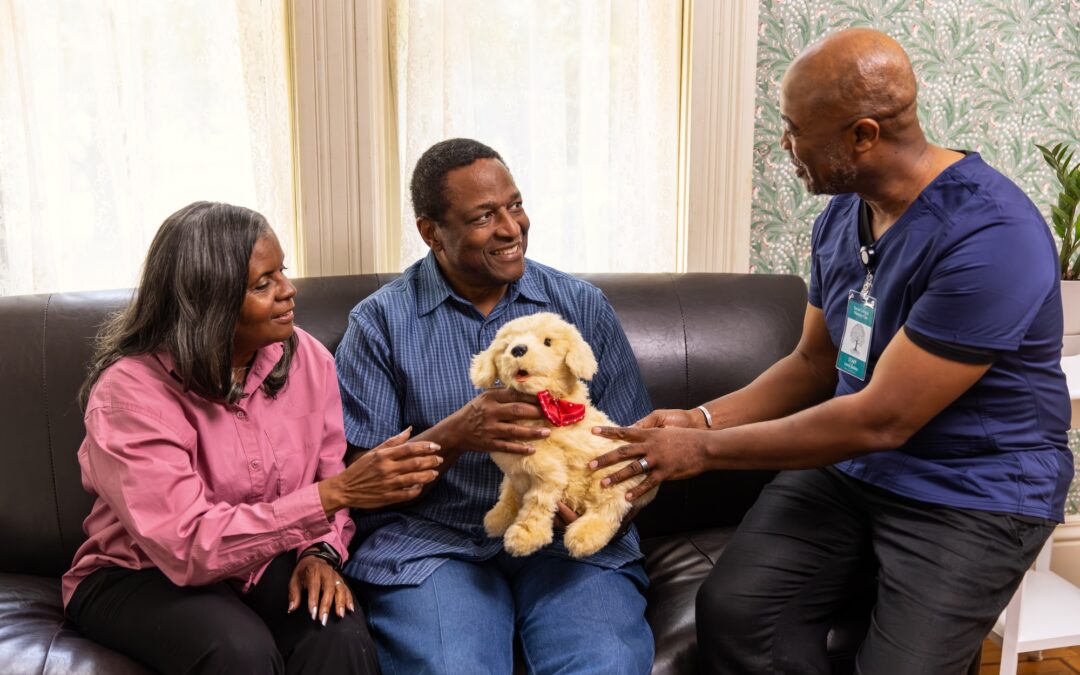Abstract
Background
Studies consistently demonstrate that older adults who are lonely have higher rates of depression and increased mortality risk. Pet ownership may be a solution for loneliness; however, challenges related to pet ownership exist for older adults. Therefore, researchers and practitioners are examining the use of animatronic pets to reduce loneliness.
Objective
To determine the feasibility of an animatronic pet program, and whether ownership of animatronic pets would decrease loneliness and improve well-being among lonely older adults.
Methods
Eligible individuals were identified as lonely through a prior survey. Participants were provided with the choice of an animatronic pet and completed T1/T2/T3 surveys.
Results
Attrition was high; 168 (63%) participants completed T1/T2 surveys, and 125 (48%) also completed a T3 survey. Post survey data indicated that loneliness decreased, while mental well-being, resilience, and purpose in life improved. Frequent interactions with the pets were associated with greater improvement in mental well-being and optimism.
Conclusions
Animatronic pets appear to provide benefits for the well-being of lonely older adults. Future studies should employ randomized controlled designs examining the impact of animatronic pets.

